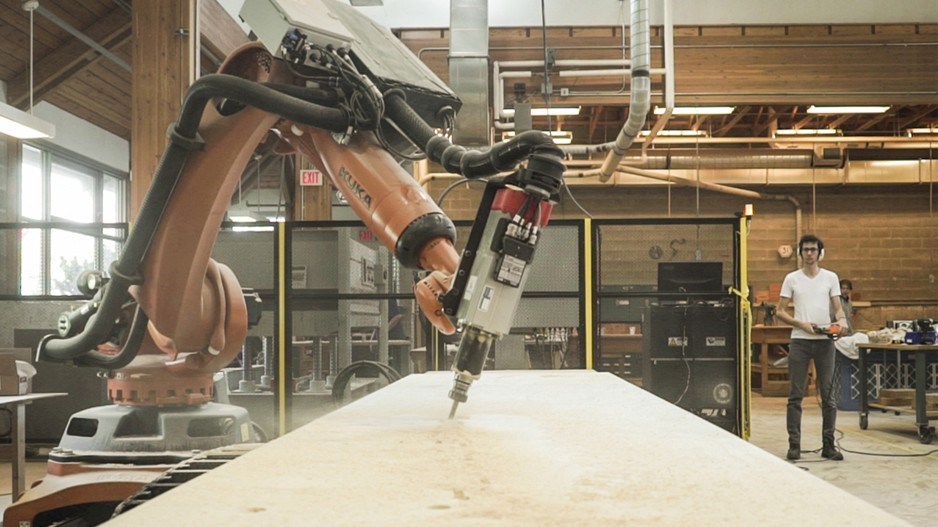Metro Vancouver construction companies have much to gain from embracing the emerging construction technology (contech) industry, but there is still more work to do to connect the two sectors and reduce barriers to the adoption of new ways of building, according to a recent report.
The whitepaper, titled The Contech Ecosystem in Metro Vancouver, provides a snapshot of the local $426 million contech industry, including information about active companies. The whitepaper, which summarizes a British Columbia Institute of Technology research project and report completed for the Vancouver Economic Commission (VEC) and consulting firm Scius Advisory, also outlines potential barriers to technology adoption and innovation. VEC and Scius co-managed the project with the support of the Vancouver Regional Construction Association.
Contech includes innovative tools used during construction, such as machinery, modifications and software, to improve productivity, reduce material waste and result in higher-performance buildings.
George Benson, the VEC’s sector manager for the built environment, said while the rate of technology adoption by architecture, engineering and construction industries has been historically low, contech should be viewed as an opportunity, not a barrier.
“These kinds of studies help us visualize how policy decisions related to one sector – construction – can unlock opportunities for others, like tech,” Benson said. “Specifically, the insights into the more technical gaps and opportunities in buildings highlight where we will need more and different technologies to meet our high-performance buildings’ needs.”
Contech became recognizable as an industry in the early 2000s with the emergence of new digital technologies, but full adoption by the construction sector still has a long way to go, according to Benson.
“Contech, or technologically enabled construction, is absolutely the future of the industry,” he said. “Smarter, more widespread usage of technology will be critical to achieving high-performance and lower-cost projects. That applies to whether we’re talking about labour shortages or achieving compliance with new high-performance building regulations, like the BC Energy Step Code.”
The report, authored by Lara Azarcon and Felippe Calçado and published in July, examines Metro Vancouver’s rapidly evolving technology ecosystem – one of the most important value-added sectors. It found that while links between construction and technology are limited, many opportunities exist for cross-industry connections. With the Lower Mainland’s construction industry facing a labour shortage of about 17,000 workers by 2029, Vancouver-made technologies like software and robotics could provide an alternative.
“As many workers move to retire and worker preferences change, construction will have to fill those gaps with technology,” Benson said.
The study identified 66 contech companies in Vancouver with construction applications for robotics, internet of things (IoT), modularization, digital twinning, analytics and software development. Prefabrication and modular construction is the largest contech category by revenue. Nine publicly traded multinational contech companies have Vancouver offices including CAT Equipment, Oracle and General Electric.
About 1,600 people work in Vancouver’s private-sector contech industry, mostly in robotics, drones, 3D printing and modularization. The local industry is in its early stages of development and will need “proper alignment with the whole of the construction sector” to continue to grow, according to the report.
Contech can also support the region’s climate goals, according to the report, as technologies help reduce the environmental footprint of construction and building operations, which are responsible for half of Metro Vancouver’s greenhouse gas emissions and 30% of the solid waste stream.
Benson agreed that technology helps the construction industry achieve higher-performance end products at a lower cost while reducing waste, citing the University of Texas’ Construction Industry Institute as an example. The institute found that contech adoption can increase productivity by up to 40%.
“Contech enables more advanced, dynamic modelling of building design scenarios and performance,” he explained. “Digital twinning solutions, for example, can help with modelling to ensure a building meets performance standards in health and safety or carbon pollution reduction before it’s even built.”
Contech can also support the construction industry during the pandemic, according to Benson, with the use of software to improve efficiencies, co-ordination and off-site assembly.
Benson said more work needs to be done to spread the word about how the emerging contech sector can support Metro Vancouver construction companies.The next step is to work with governments, developers and asset owners to create procurement structures that reduce risk in technology adoption – especially for smaller companies – and provide additional regulatory measures, industry strategies and road maps, according to Benson.
Helen Goodland, Scius Advisory’s head of research and innovation, said as B.C.’s construction industry faces increasingly stringent codes, a persistent labour shortage, a proliferation of new technologies and increasing competition, it needs to invest more in research and development.
“The purpose of this study was to raise awareness of the technology providers on their doorstep and give construction firms the opportunity to create the relationships necessary to help them get started,” Goodland said.




